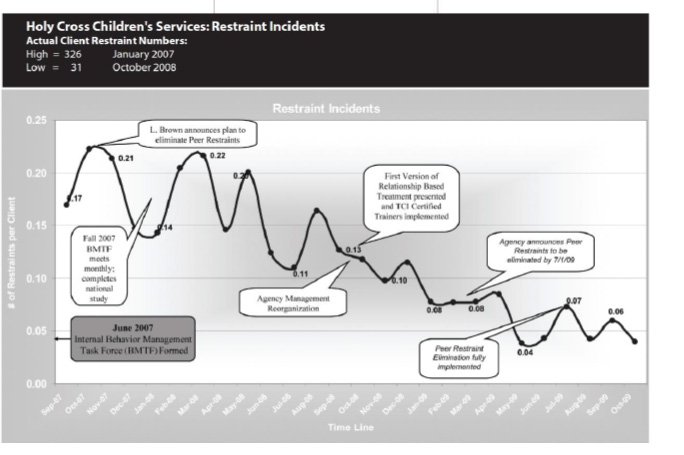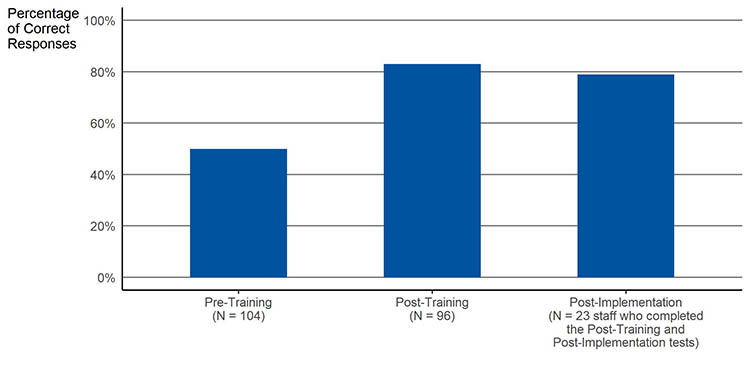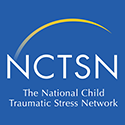
TCI decreases physical restraints (Farragher, 2002)
To download this information, click here.
Over a 12 month period, a residential treatment center in New York reduced the average number of restraints per month by 80%. The agency provided TCI training for their staff along with implementation of the other components of the TCI System – committed leadership, focused supervision, clinical participation, and documentation that is regularly and systematically reviewed. Significant decreases in physical aggression, injuries, running away, and property damage were also observed.

Farragher, B. (2002). A system-wide approach to reducing incidents of therapeutic restraint. Residential Treatment for Children & Youth, 20(1), 1-14.
TCI decreases physical restraints
To download this information, click here.

From October 1994 through March 1996, RCCP staff implemented and evaluated TCI in one medium size residential facility in the Northeastern United States. Three of four units participated in the study. In Unit B, which accounted for 84% of the children served, the total number of physical restraints reported decreased from 101 pre-implementation (10/95-3/95), to 64 during implementation (4/95-9/95), and 31 during post-implementation (10/95-3/96), a statistically significant reduction. The number of children in care remained the same during this period.
Nunno, M. A., Holden, M. J., & Leidy, B. (2003). Evaluating and monitoring the impact of a crisis intervention system on a residential child care facility. Children and Youth Services Review, 25(4), 295-315.
TCI decreases physical restraints and critical incidents
To download this information, click here.

Holy Cross Children’s Services (HCCS) provides residential and community services for children and families in 78 of Michigan’s 83 counties. The residential services include four campuses and six group homes. In the 1970’s HCCS adopted the Positive Peer Culture for its residential services. In January 2007, HCCS averaged about 250 restraints per month across its residential facilities. In 2007 HCCS leadership decided to move from the Positive Peer Culture model to TCI. Over a two-year period HCCS implemented TCI and reduced the number of restraints per child as illustrated in the figure above. In addition, the number of critical incidents decreased by 50%.
Brown, L. B., Tester, G. (2010). Holy Cross Children’s Services and TCI: A Partnership for Success. refocus: The Residential Child Care Project Newsletter, 15, 1-5.
Physical restraints decreased when use of Life Space Interviews increased
To download this information, click here.
In 2012, leadership in an agency in the Midwest was concerned about the number and frequency (the number of restraints per care day) of restraints taking place. Agency staff were trained in TCI, but in studying the issue leadership and staff identified two problems: 1) “drift” in the application of core TCI concepts and 2) insufficient or ineffective use of TCI’s Life Space Interview (LSI) technique. The LSI is a powerful tool for teaching self-regulation skills and values. It uses children’s reactions to difficult situations as a way to help them gain insight and understanding into their own feelings and behaviors.
To reduce the use of restraints, a team from the agency identified steps to increase the use of the LSI. To do so, staff were retrained in the LSI technique, documentation of the completion of an LSI was required for every restraint that took place, and monthly reports of physical restraints and the accompanying LSI documentation were reviewed by site directors and supervisors. As indicated in the table below, the number of restraints decreased by 52% ((620-299)/620)) and the frequency by 50% (0.013/0.026) after implementation of these steps.

Greenlee, S. (2014). Reports from the Field: Nexus/Onarga Academy. refocus: The Residential Child Care Project Newsletter, 19, 6-7.
TCI increases staff crisis intervention knowledge
To download this information, click here.

From October 1994 through March 1996, RCCP staff implemented and evaluated TCI in one medium size residential facility in the Northeastern United States. Three of four units participated in the study. Direct care staff completed a 30-item knowledge test before and immediately after participating in the 5-day TCI training program. Staff completed the knowledge test again nine months after training was completed.
Direct care staff increased their percentage of correct answers from pre-test scores of 50% to post-test scores of 83%. Staff who completed the knowledge test nine months later retained most of the knowledge with 79% of questions answered correctly.
Nunno, M. A., Holden, M. J., & Leidy, B. (2003). Evaluating and monitoring the impact of a crisis intervention system on a residential child care facility. Children and Youth Services Review, 25(4), 295-315. https://doi.org/10.1016/S0190-7409(03)00013-6
TCI increases staff confidence in handling crises
To download this information, click here.

From October 1994 through March 1996, RCCP staff implemented and evaluated TCI in one medium size residential facility in the Northeastern United States. Three of four units participated in the study. Direct care staff completed 10 Likert based questions confidence questions before and after participating in the 5-day TCI training program.
A comparison of the pre/post confidence items indicated statistically significant increases in confidence levels in four major areas. These were staff ability to manage crisis, confidence in co-workers managing crisis, knowledge of agency policy and procedures concerning crisis management, and staff ability tin helping children learn to cope. In addition, the standard deviations for the post-implementation scores decreased from pre levels in 9 out of 10 items indicating that there is more consistency and clustering of responses post-training.
Nunno, M. A., Holden, M. J., & Leidy, B. (2003). Evaluating and monitoring the impact of a crisis intervention system on a residential child care facility. Children and Youth Services Review, 25(4), 295-315. https://doi.org/10.1016/S0190-7409(03)00013-6
Peer-reviewed studies and evaluations by agencies implementing Therapeutic Crisis Intervention system (TCI) support the effectiveness of TCI. Additional support is provided by survey assessments of staff reactions to the TCI system.
In 2018, RCCP was awarded a grant from the National Institute of Justice (Award # 2017-CK-BX-00I2) to conduct a group randomized trial of TCI for Schools (TCIS) in the elementary and K-8 schools of a midsize Northeastern city. Though interrupted by the COVID-19 pandemic, results from this trial will be available in 2023.












